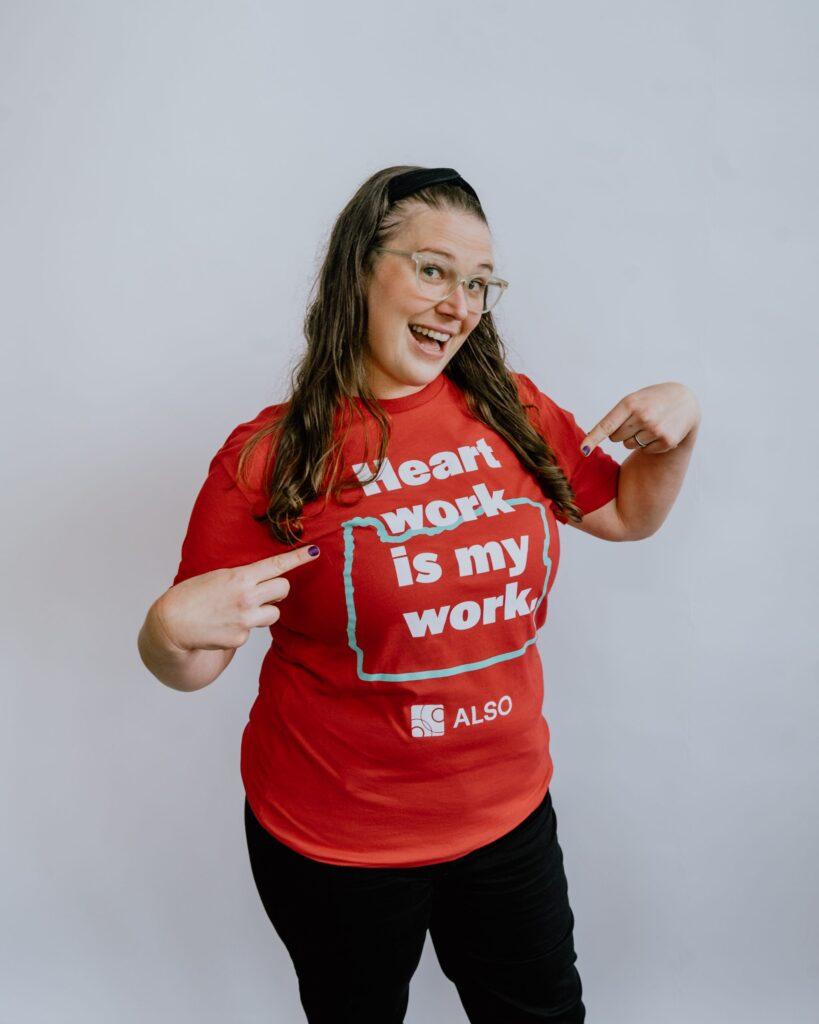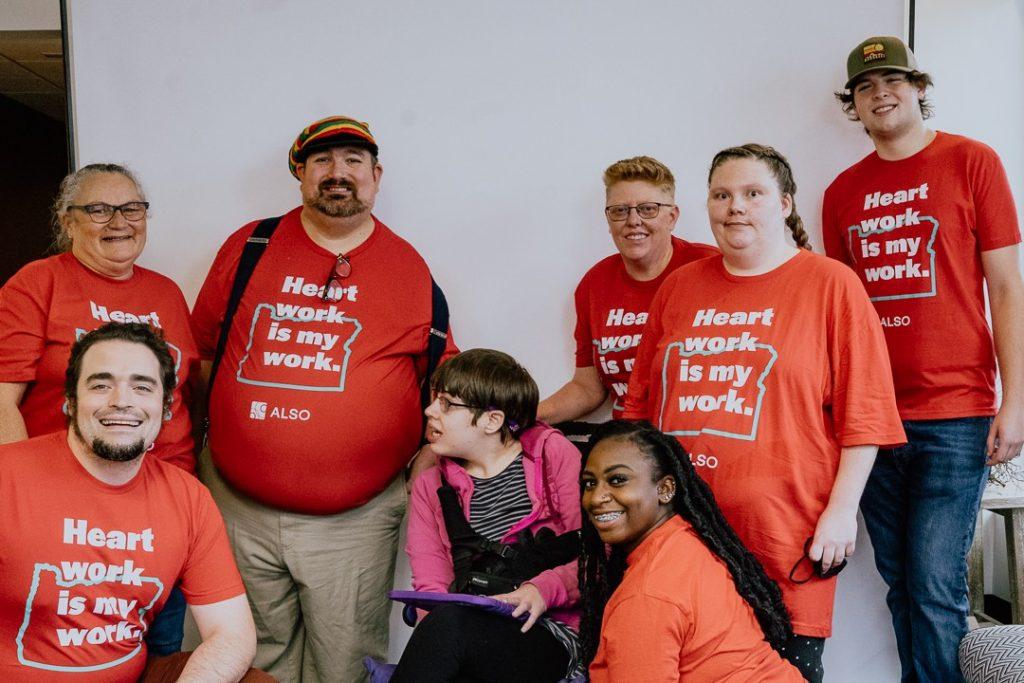Get involved in our 2024 events!
Get involved in our 2024 events!


“Supported Employment Services” refers to helping people with intellectual and developmental disabilities obtain and maintain competitive employment. This employment in a business workplace is expected to pay wages and benefits. In the U.S., companies such as Meta (formerly Facebook) and Microsoft are examples of supported employment workplaces that are recognized by state and federal governments (and as such, they may qualify for government reimbursement).
Supported employment was developed in the U.S. in the 1970s as a part of vocational rehabilitation (VR) services and advocacy for long-term services and supports (LTSS) for disabled persons in competitive job placements within integrated settings (for instance, in businesses, offices, and manufacturing facilities). “Competitive” refers to jobs where there are no other individuals with disabilities present.
As of the mid-1980s, the term “supported employment” has referred to an individual placement model, using either job coaches or natural supports models. “Natural supports” are those provided to an employee with a disability by coworkers and supervisors, such as friendship, mentoring, socializing after work or on breaks, offering feedback on job performance, or learning a new skill together.
It should be said that supported employment is not always associated with disabilities; it can also refer to assisting diverse workers of all types who may need a “jump-start” in a workplace, but the term originates in deinstitutionalization and community integration. Jobs for people with intellectual disabilities have always existed, but only recently have support services come into being that aid qualification for and placement in intellectual and developmental disabilities jobs.
Supported employment services help individuals with intellectual and developmental disabilities to find competitive employment, be autonomous, and contribute to their local businesses and communities, increasing a sense of pride, accomplishment, and self-worth, among other qualities.
Employment offers these individuals a purpose, a paycheck, and limitless opportunities to produce, learn, and grow through working. Along the way, relationships are formed, and individuals are better able to access community resources. In short, jobs offer individuals with disabilities support in three ways: financially, aptitudinally, and socially.

Advocates for Life Skills & Opportunity (ALSO) is a nonprofit disability support service providing supported employment in Oregon, specifically in the Metro Portland area, Klamath, Jackson, Josephine and Deschutes counties. Established in 1997, ALSO is committed to independence and full community inclusion for people with intellectual and developmental disabilities.
ALSO’s employment services are at the heart of the organization, helping to realize its mission statement — to promote the full inclusion of people experiencing disabilities in the life of their community. As ALSO says, “This work is heart work”; ALSO advocates for the people it serves and strives to be a positive agent of change.
It’s the task of ALSO to be tenacious and creative in offering support to individuals with intellectual and developmental disabilities. ALSO provides a person-centered care approach for every individual, incorporating their right to individual input and choice.
ALSO works with job seekers to formulate career development plans that consider skills and goals while working with private enterprises to create jobs that fulfill business needs. ALSO matches companies with qualified applicants that have the skills and personality to fit a business’s needs and culture. Employers gain productive, responsible employees who take a sense of pride and accomplishment in the work they do, while workers are able to grow in terms of knowledge, ability, and independence.
ALSO tailors part-time positions that are typically 10 to 20 hours per week. Training and support are provided to employers at no additional cost.
ALSO’s values are trust, teamwork, innovation, dignity, respect, accountability, and humility. These values guide the heart work that ALSO does to support personalized, individualized care for people with disabilities. ALSO is committed to being a diverse, inclusive organization that stands for justice and equity, empowering all its advocates and partner businesses to connect, grow and belong. ALSO team members defend every person’s worth and ability to direct their own feelings, thoughts, and actions. They work in unison to support each other in unleashing the power and potential of all individuals.

Supported employment services benefit people, businesses, schools, and communities.
For individuals with intellectual and developmental disabilities seeking jobs, a supportive employment program can help them to make informed decisions about work, benefits, and work incentives as paths for achieving their personal goals.
For employers, supported employment jobs can help fulfill business needs while providing meaningful employment opportunities for individuals with disabilities.
Some employers may be under the mistaken impression that hiring employees with disabilities increases workers’ compensation insurance rates. This is a myth; insurance rates are based only on the hazards present in a workplace, and not on who is present there.
It’s also a myth that providing accommodations for workers with disabilities is expensive; the fact of the matter is that the majority of workers with disabilities don’t require special accommodations to do their jobs, and for the ones that do, the cost tends to be minimal. According to the U.S. Department of Labor’s Office of Disability Employment Policy, 56% of such accommodations cost under $600, with many accommodations costing nothing. Employers have reported that accommodations for employees with disabilities generally cost an average of just $320 more than what they would have cost for employees without disabilities. Additionally, tax incentives make it even more attractive for businesses to cover any costs associated with accessibility.
Schools and communities benefit from supported employment services because costs associated with providing support or assistance to individuals with disabilities are lessened. Schools need to offer fewer ancillary services and programs, and communities can feel that instead of resources being expended, their production and tax bases are being augmented.
Everyone is able to do valuable work in some way, and there is a job for every person. Not working should be the exception for individuals with disabilities, not the rule. While some people with disabilities may be under the mistaken impression that they’ll lose medical insurance or state or federal benefits if they go to work, this is rarely the case.
ALSO provides jobs for people with developmental disabilities that are meaningful, necessary, and important to a company’s bottom line. Such jobs increase self-worth, build relationships and increase access to community resources (see below).
Employment of individuals with intellectual and developmental disabilities also provides opportunities for enriching culture in a workplace. Everyone has something positive to contribute to a working environment, and everyone also has a need to contribute; employment is a win-win proposition for both individuals and employers.
Individuals, families, schools, and businesses need to raise their expectations; people with intellectual and developmental disabilities are not just able to do work that’s valuable, meaningful, and worthwhile. This work will give them a sense of pride and accomplishment that increases self-esteem, confidence, and self-reliance. Employment allows people receiving support to lead more independent, consequential lives in communities and workplaces.
With supported employment, people are hired because of their ability, not because they have disabilities. Studies have shown that, with meaningful work, people of all types are healthier, safer, and happier. Being “needed” increases feelings of motivation, purpose, and usefulness.
Being placed in a competitive work environment allows individuals with disabilities to feel that they’re just as competent and valued as workers without disabilities. In these environments, specific skills can be learned, broadening an individual’s capabilities and increasing their worth to businesses and communities. Ancillary benefits such as self-discipline, judgment, and pride in a job well done are also realized.
Employment opportunities for people with disabilities allow such persons to live the life they choose; increasingly, their life becomes based around what they’re able to get done, rather than what they’re not able to accomplish.
Entering workplaces and being productive puts people with disabilities in a position to gain trust, respect, and autonomy. This can foster relationships that enrich their lives and the lives of people they meet and work with.
In many ways, relationships can be the most rewarding part of employment opportunities for persons with disabilities; a paycheck and productivity are important, but the value of relationships is inestimable (and often lifelong). The individuals ALSO support have established relationships that have been invaluable in helping them feel more connected to their families, schools, and communities.
ALSO believes that individuals with disabilities enrich communities with their unique perspectives and talents. In turn, communities embrace people who are contributors. Via robust employment support for people with disabilities, such individuals receive greater and broader access to community resources.
ALSO envisions a future where all people — including (and especially) people with developmental and other disabilities — are fully included, participative members of their communities. ALSO’s goal is equitable access for individuals with disabilities to supports and services that reflect the preferences and values of diverse societies.


Sign up for our newsletter to get our latest news, content, and job opportunities.
Help us ensure that everyone has the same opportunities in their home, workplace and community. Let’s make dreams!
